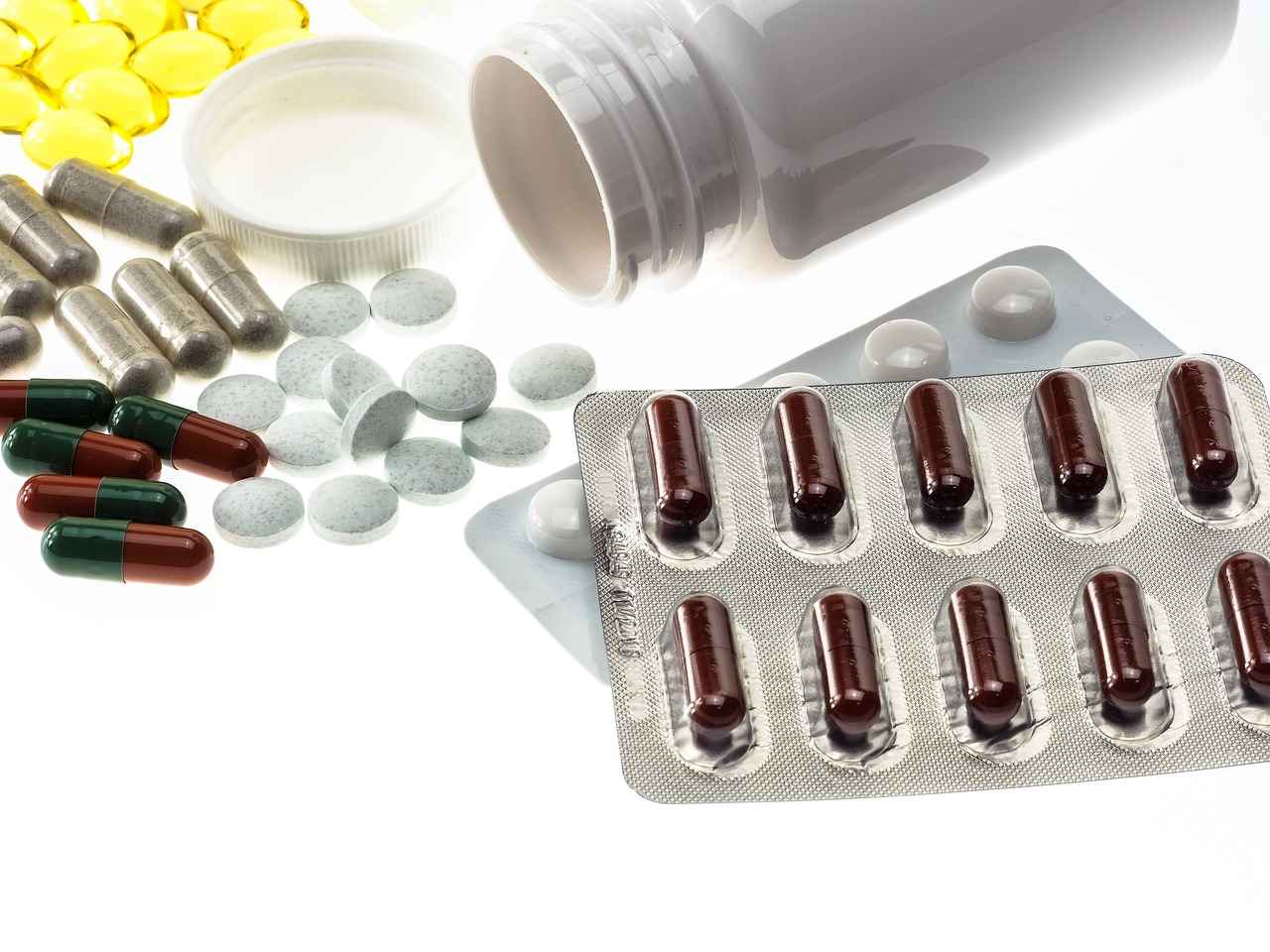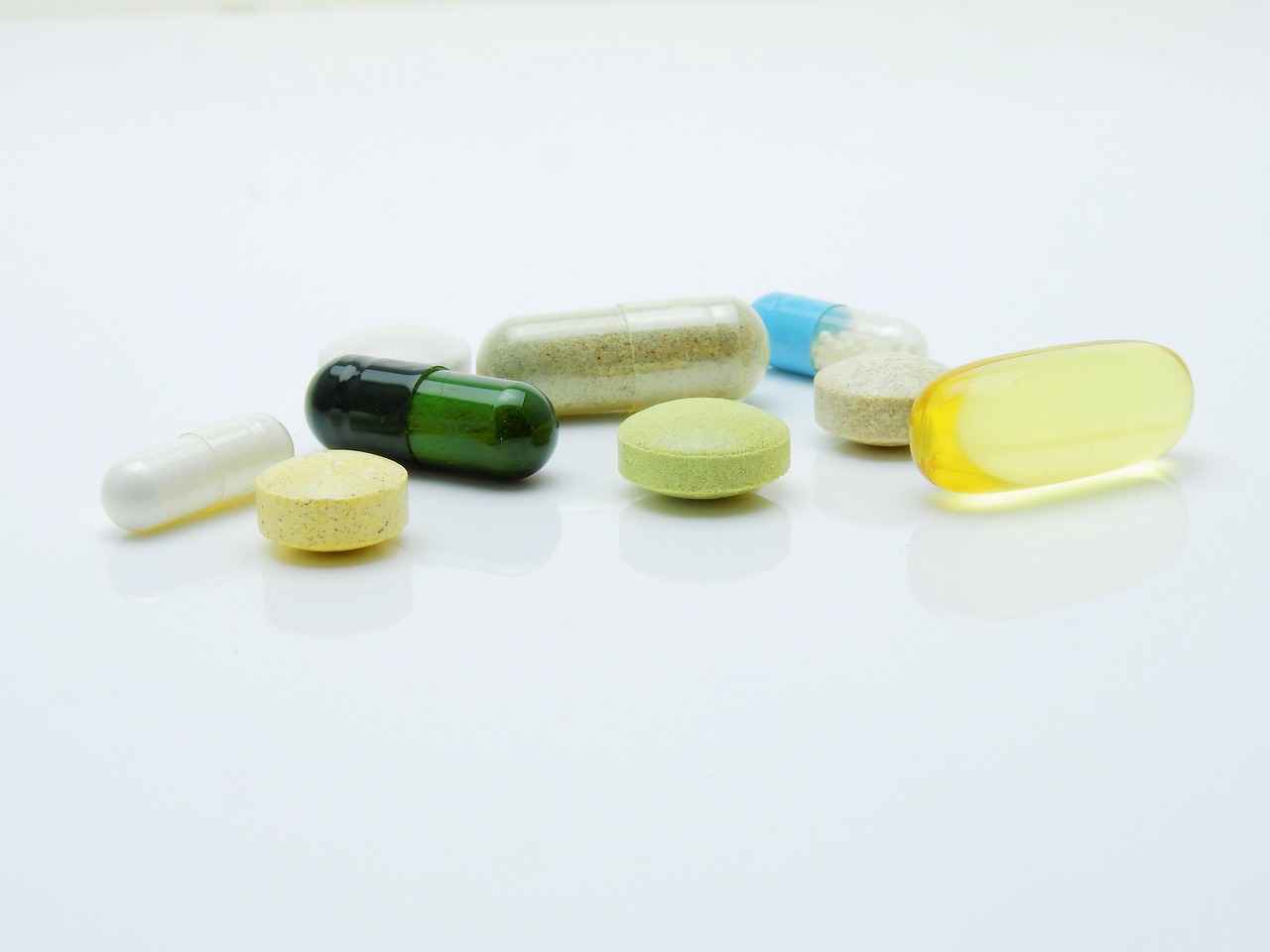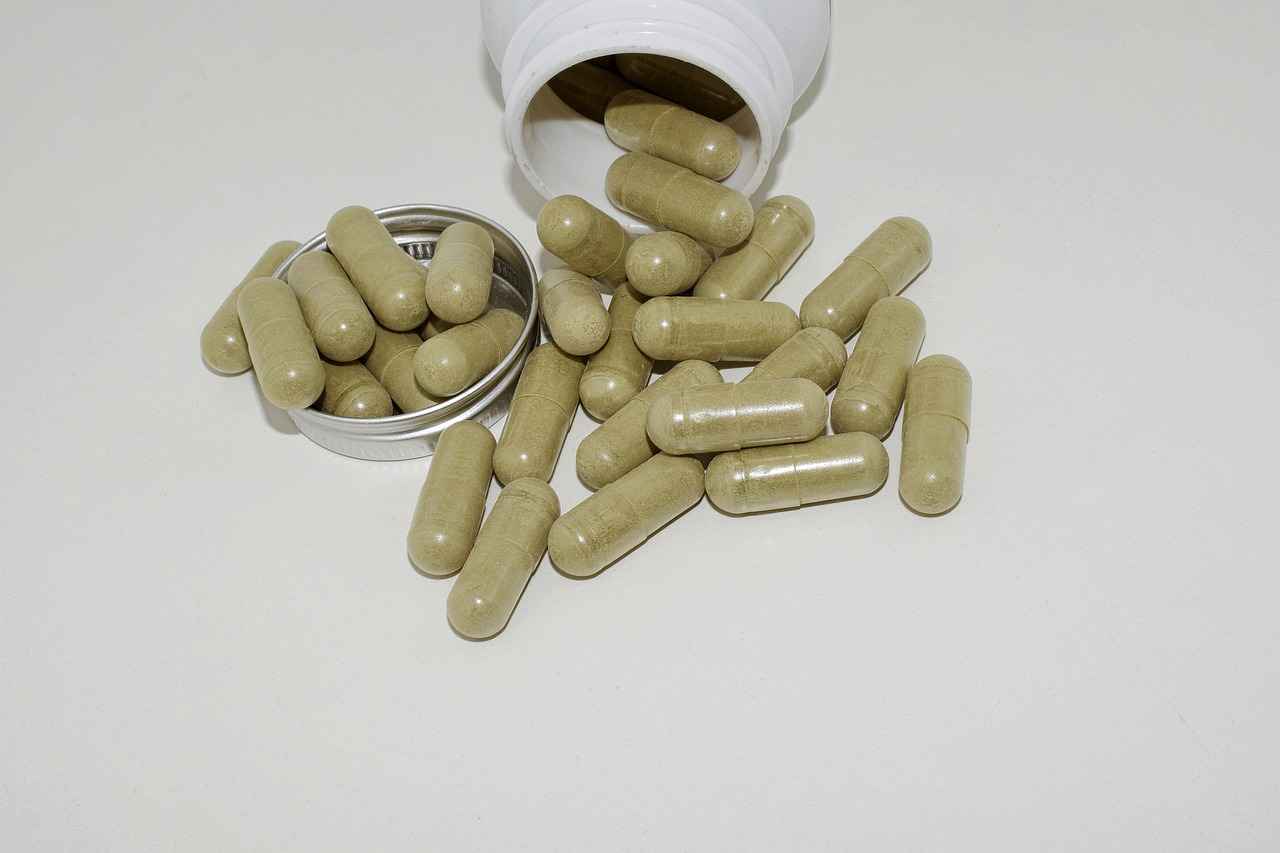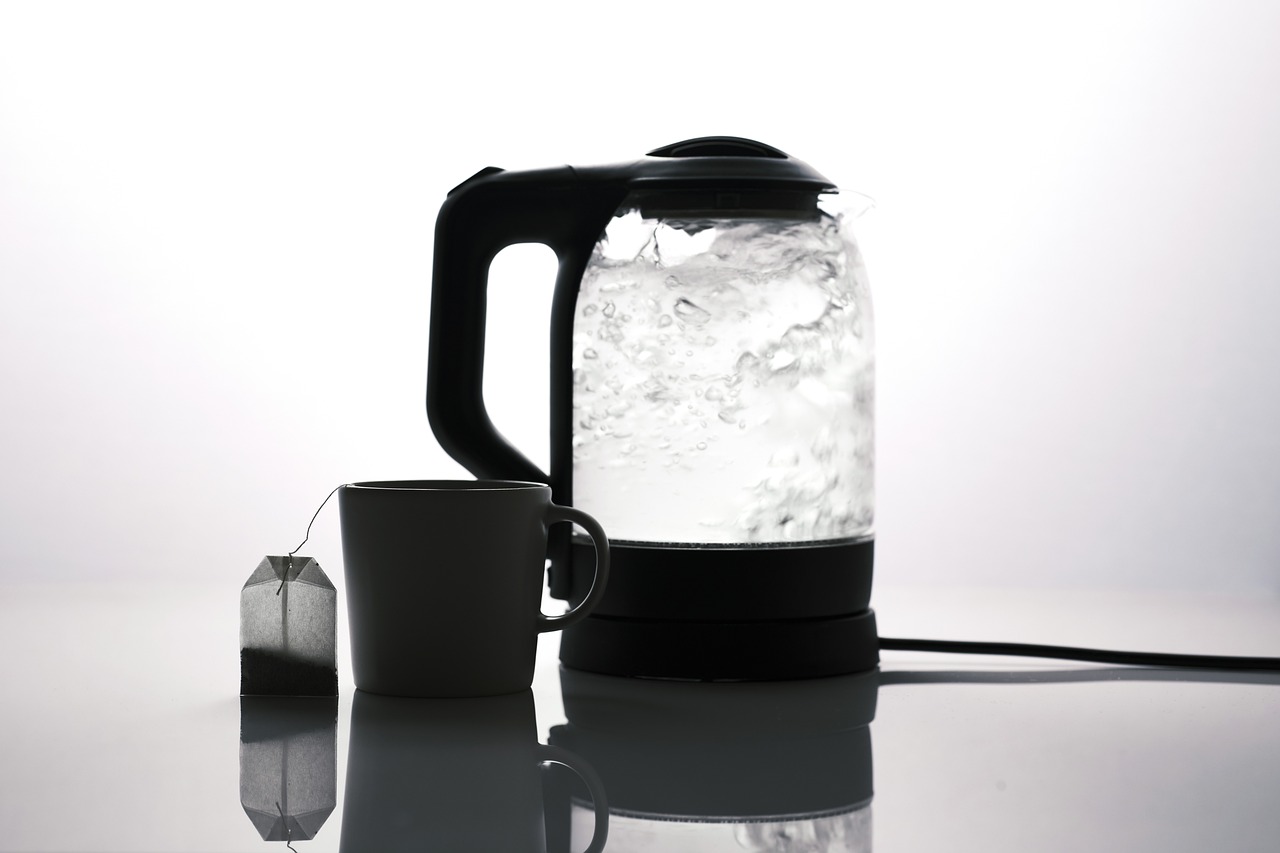This article explores the most beneficial supplements to consider while undergoing a water fast, enhancing your fasting experience and ensuring nutritional needs are met.
Understanding Water Fasting
Water fasting involves abstaining from all food and caloric beverages, consuming only water for a specified period. This method is often practiced for various reasons, including detoxification, weight loss, and spiritual growth. The potential benefits of water fasting can include improved mental clarity, enhanced metabolic function, and cellular repair. However, it’s essential to understand that prolonged fasting can lead to nutrient deficiencies, making supplementation vital.
Why Consider Supplements During a Water Fast?
During a water fast, your body may miss essential nutrients, which can affect your overall health. Supplements can help maintain nutrient levels, supporting bodily functions and preventing fatigue. By incorporating supplements, you can enhance your fasting experience, ensuring that your body receives the necessary elements to function optimally.
Electrolytes: The Key to Staying Hydrated
Maintaining electrolyte balance is crucial during a water fast. Key electrolytes include:
- Sodium: Vital for regulating fluid balance and supporting nerve function.
- Potassium: Important for muscle contractions and heart health.
- Magnesium: Essential for energy production and muscle function.
Benefits of Sodium During Fasting
Sodium helps regulate fluid balance and supports nerve function. Adequate sodium intake can enhance your fasting experience by preventing dehydration and ensuring proper muscle function.
Potassium’s Role in Muscle Function
Potassium is vital for muscle contractions and heart health. Supplementing potassium during a water fast can help maintain muscle function and prevent cramps.
Magnesium: A Vital Mineral
Magnesium plays a crucial role in energy production and muscle function. It can help alleviate fatigue and support overall well-being during fasting. Consider magnesium supplements to keep your levels stable.
Vitamins to Consider During Fasting
Certain vitamins can support your body’s functions during a water fast. Key vitamins include:
- Vitamin C: Known for its immune-boosting properties, it can help support your body during fasting.
- B Vitamins: Essential for energy production and metabolism, they are crucial during fasting periods.
Vitamin C: Immune Support
Vitamin C is vital for immune function, especially during fasting when the body undergoes stress. Supplementing with vitamin C can enhance your immune response and help prevent illness.
B Vitamins: Energy and Metabolism
B vitamins are essential for energy production. They help your body convert food into energy, which is particularly important during a fast. Consider a B-complex supplement to support your energy levels.
Herbal Supplements for Enhanced Fasting
Herbal supplements can provide additional benefits during a water fast. Popular options include:
- Adaptogens: Herbs like ashwagandha and rhodiola can help manage stress levels during fasting.
- Green Tea Extract: Rich in antioxidants, it can support metabolism and provide energy.
Adaptogens: Stress Relief During Fasting
Adaptogenic herbs can help the body adapt to stress, making them beneficial during fasting. They may enhance resilience and promote a sense of well-being.
Green Tea Extract: Antioxidant Support
Green tea extract is packed with antioxidants, which can support metabolism and overall health during a water fast. It may help enhance fat oxidation and provide a gentle energy boost.
Safety Considerations When Taking Supplements
While supplements can be beneficial, it’s essential to approach them with caution. Always consult with a healthcare professional before starting any supplementation, especially during a fast. This ensures you receive personalized advice tailored to your health needs.
Potential Side Effects of Supplements
Understanding potential side effects is crucial. Common side effects may include gastrointestinal discomfort or interactions with medications. Always monitor your body’s response and adjust accordingly.

Understanding Water Fasting
Water fasting is a practice that involves the complete abstinence from all food and caloric beverages, allowing only the consumption of water. This method has gained popularity for its potential health benefits and is often used for detoxification, weight loss, and spiritual purposes. In this section, we will delve deeper into the principles of water fasting and explore the various benefits it may offer.
At its core, water fasting is based on the principle of caloric restriction. By eliminating all food intake, the body is forced to utilize its stored energy reserves, primarily fat, for fuel. This metabolic shift can lead to various physiological changes that may be beneficial for health. During a water fast, the body enters a state called ketosis, where it begins to burn fat for energy, potentially aiding in weight loss and improving metabolic health.
One of the most significant benefits of water fasting is its potential to promote cellular repair and regeneration. Research suggests that fasting can stimulate autophagy, a process where the body cleans out damaged cells and regenerates new ones. This can contribute to improved health and longevity by reducing the risk of chronic diseases.
Moreover, water fasting may have positive effects on mental clarity and focus. Many individuals report heightened mental acuity during fasting periods, which could be attributed to the release of ketones that serve as an efficient energy source for the brain. This enhanced cognitive function can be particularly beneficial for those seeking improved productivity during fasting.
Additionally, water fasting can serve as a powerful tool for detoxification. By abstaining from food, the body can redirect its energy towards eliminating toxins and waste products. This natural detox process may lead to improved digestion, clearer skin, and increased energy levels once the fast is completed.
However, it is essential to approach water fasting with caution. Not everyone is suited for this fasting method, and individuals with certain health conditions should consult a healthcare professional before attempting a water fast. Proper preparation, including understanding the duration and potential side effects, is crucial for a safe experience.
In conclusion, understanding the principles and potential benefits of water fasting can empower individuals to make informed decisions about their health. By recognizing the physiological changes that occur during fasting, one can appreciate its role in promoting overall well-being. Whether used for detoxification, weight loss, or mental clarity, water fasting offers a unique approach to health that has captured the attention of many.

Why Consider Supplements During a Water Fast?
Water fasting, the practice of abstaining from all food and caloric beverages while only consuming water, has gained popularity for its potential health benefits. However, undertaking a water fast can pose challenges, particularly in maintaining adequate nutrient levels. This is where supplementation plays a critical role in supporting overall health during the fasting period.
During a water fast, the body undergoes significant changes as it shifts from a state of digestion to a state of detoxification. While this transition can be beneficial, it can also lead to nutrient deficiencies if not managed properly. Supplements can help bridge this gap, ensuring that essential vitamins and minerals remain at optimal levels, thereby enhancing the fasting experience.
Electrolyte Balance: Essential for Well-being
One of the primary concerns during a water fast is maintaining electrolyte balance. Electrolytes, such as sodium, potassium, and magnesium, are crucial for various bodily functions, including nerve transmission and muscle contractions. Without adequate intake, individuals may experience symptoms such as dizziness, fatigue, and muscle cramps.
- Sodium: Vital for fluid balance and nerve function, sodium helps regulate blood pressure and hydration levels.
- Potassium: Important for heart health and muscle function, potassium supports cellular function and helps prevent muscle cramps.
- Magnesium: This mineral is essential for energy production and helps reduce fatigue, making it an important supplement during fasting.
Vitamins: Supporting Immune Function
In addition to electrolytes, certain vitamins can greatly benefit the body during a water fast. For instance, Vitamin C is renowned for its immune-boosting properties, which can be particularly beneficial as the body detoxifies. Additionally, B vitamins play a crucial role in energy metabolism, helping to maintain energy levels during fasting.
Herbal Supplements: Natural Enhancements
Herbal supplements can also provide additional benefits during a water fast. Adaptogens, such as ashwagandha and rhodiola, help the body manage stress, which can be heightened during fasting. Furthermore, green tea extract is rich in antioxidants, supporting metabolism and overall health.
Safety Considerations: Consult and Monitor
While supplements can enhance the fasting experience, it is crucial to approach supplementation with caution. Consulting a healthcare professional before starting any supplement regimen is essential to ensure that it aligns with individual health needs and conditions. Additionally, being aware of potential side effects is vital. Common side effects of supplements can include gastrointestinal discomfort or interactions with medications, so monitoring your body’s response is important.
In summary, considering supplements during a water fast can significantly support overall health and well-being. By maintaining electrolyte balance, ensuring adequate vitamin intake, and exploring herbal options, individuals can enhance their fasting experience while minimizing potential risks. Always prioritize safety and consult with a healthcare provider to tailor supplementation to your specific needs.
Electrolytes: The Key to Staying Hydrated
Maintaining electrolyte balance is essential during a water fast, as it plays a significant role in overall health and well-being. When fasting, the body undergoes various physiological changes, and the lack of food intake can lead to potential imbalances in key electrolytes. This section delves into the importance of electrolytes like sodium, potassium, and magnesium, and how they contribute to a successful fasting experience.
Electrolytes are minerals that carry an electric charge and are critical for numerous bodily functions. They help regulate nerve function, muscle contractions, and maintain fluid balance within cells. During a water fast, the body may experience a decrease in these vital minerals, leading to symptoms such as fatigue, muscle cramps, and dizziness. Thus, understanding their roles and ensuring adequate intake is crucial.
- Sodium: Often overlooked, sodium is vital for maintaining fluid balance and supporting nerve function. It helps in the transmission of electrical signals in the body, which is essential during fasting. A proper sodium intake can help prevent headaches and fatigue that may arise from electrolyte imbalances.
- Potassium: This mineral is essential for muscle contractions and heart health. It helps regulate blood pressure and is crucial for maintaining proper hydration levels. Low potassium levels can lead to muscle weakness and cramping, making it important to monitor intake during a fast.
- Magnesium: Magnesium is involved in over 300 biochemical reactions in the body, including energy production and muscle function. It helps alleviate stress and can improve sleep quality, both of which are beneficial during a fasting period. Supplementing magnesium can help prevent deficiencies and support overall well-being.
To maintain electrolyte balance during a water fast, consider the following strategies:
- Hydration: Ensure you are drinking adequate amounts of water. Adding a pinch of sea salt to your water can help replenish sodium levels.
- Electrolyte Supplements: Consider using electrolyte powders or tablets that contain sodium, potassium, and magnesium. These can help maintain balance without adding calories.
- Monitor Symptoms: Pay attention to your body. If you experience symptoms like dizziness, severe fatigue, or muscle cramps, it may indicate an electrolyte imbalance that needs addressing.
In conclusion, maintaining electrolyte balance is critical during a water fast. By focusing on the intake of sodium, potassium, and magnesium, you can enhance your fasting experience and minimize discomfort. Always consult with a healthcare professional before making any significant changes to your diet or supplement regimen, especially during fasting.
Benefits of Sodium During Fasting
Sodium is an essential electrolyte that plays a critical role in maintaining fluid balance within the body. During fasting, particularly water fasting, the body undergoes various changes that can affect electrolyte levels. Understanding the importance of sodium can significantly enhance your fasting experience.
One of the primary functions of sodium is to help regulate blood pressure and maintain hydration. When you fast, your body may lose fluids more rapidly, leading to potential imbalances. Adequate sodium intake can help mitigate these effects by ensuring that your body retains the necessary fluids, thereby preventing dehydration.
Moreover, sodium supports nerve function. Nerves communicate signals throughout the body, and sodium is vital for this process. During a fast, some individuals may experience fatigue or dizziness, which can be linked to low sodium levels. By ensuring sufficient sodium intake, you can maintain optimal nerve function, which may help you feel more alert and focused during your fasting period.
How Sodium Enhances Your Fasting Experience
- Improved Energy Levels: Adequate sodium can help sustain your energy levels, making it easier to engage in daily activities.
- Better Mood Stability: Proper sodium levels can contribute to emotional stability, reducing irritability and mood swings that sometimes accompany fasting.
- Enhanced Physical Performance: For those who continue exercising while fasting, sodium is crucial for muscle contraction and overall performance.
It’s important to note that while sodium is vital, moderation is key. Too much sodium can lead to health issues, including high blood pressure. Therefore, it is essential to find a balance that works for your body. Incorporating sodium-rich foods or supplements, such as electrolyte powders or bone broth, can be beneficial during your fasting journey.
In conclusion, understanding the role of sodium during fasting can significantly enhance your overall experience. By maintaining proper sodium levels, you can support your body’s fluid balance, nerve function, and overall well-being, allowing you to navigate your fasting period more effectively.
Potassium’s Role in Muscle Function
Potassium is an essential mineral that plays a critical role in various bodily functions, particularly during water fasting. Its importance cannot be overstated, especially when it comes to maintaining muscle contractions and supporting heart health. This section will delve into the significance of potassium during a water fast and provide insights on how to effectively supplement it.
During a water fast, the body undergoes a series of metabolic changes. One of the most significant alterations is the shift in electrolyte balance. Potassium, along with sodium and magnesium, is vital for maintaining this balance. It helps in regulating fluid levels, which is crucial as the body can lose electrolytes through urine and sweat, even without food intake.
Why is Potassium Important? Potassium is integral to the proper functioning of muscles and nerves. It facilitates the transmission of electrical signals in the body, which is essential for muscle contractions. A deficiency in potassium can lead to muscle weakness, cramps, and irregular heart rhythms, all of which can be detrimental during a fasting period.
Moreover, potassium helps to regulate blood pressure. During fasting, some individuals may experience fluctuations in blood pressure, making adequate potassium intake even more critical. This mineral also supports the body’s ability to manage stress, which can be elevated during fasting.
How to Supplement Potassium Effectively While water fasting, it’s important to consider how to supplement potassium safely. Here are some effective ways to ensure you are getting enough of this vital mineral:
- Electrolyte Supplements: Look for electrolyte powders or tablets that specifically list potassium as a key ingredient. These can be easily mixed with water and consumed during the fast.
- Potassium-Rich Broths: If you are open to consuming non-caloric broths, consider potassium-rich vegetable or bone broths. These can provide essential minerals without significantly breaking your fast.
- Monitoring Intake: Keep track of your potassium levels through blood tests if possible. This can help identify any deficiencies early on and adjust your supplementation accordingly.
It’s also important to note that while potassium supplementation can be beneficial, excessive intake can lead to hyperkalemia, a condition characterized by elevated potassium levels in the blood. This can cause serious health issues, including heart complications. Therefore, consulting a healthcare professional before starting any supplementation is highly recommended.
In summary, potassium is a crucial mineral that supports muscle function and heart health, especially during a water fast. By understanding its role and how to supplement it effectively, you can enhance your fasting experience while ensuring your body remains balanced and healthy.
Magnesium: A Vital Mineral
Magnesium is an essential mineral that significantly impacts various bodily functions, particularly during periods of fasting. It plays a crucial role in energy production, muscle function, and overall health. Understanding the importance of magnesium can help you optimize your fasting experience and maintain your well-being.
During a water fast, your body undergoes several metabolic changes. One of the primary functions of magnesium is its involvement in the production of adenosine triphosphate (ATP), the energy currency of cells. Without adequate magnesium levels, energy production can be compromised, leading to feelings of fatigue and weakness. This is particularly important during fasting when your body relies on stored energy reserves.
Moreover, magnesium is vital for muscle function. It helps regulate muscle contractions and plays a role in preventing cramps and spasms, which can be common during fasting. A deficiency in magnesium may lead to increased muscle tension and discomfort, making it essential to ensure sufficient intake while abstaining from food.
Incorporating magnesium into your fasting routine can be done through various means:
- Supplements: Consider taking magnesium supplements, such as magnesium citrate or magnesium glycinate, which are easily absorbed by the body.
- Mineral Water: Drinking mineral water that is rich in magnesium can help maintain levels during your fast.
- Magnesium-Rich Foods: If you are not strictly adhering to a water-only fast, including magnesium-rich foods like leafy greens, nuts, and seeds in your meals can also be beneficial.
It is also important to note that magnesium works synergistically with other electrolytes, such as sodium and potassium, to maintain proper hydration and muscle function. Ensuring a balanced intake of these minerals is essential, especially during fasting when electrolyte levels can fluctuate.
For those who may experience symptoms of magnesium deficiency, such as muscle cramps, fatigue, or irritability, supplementation could be particularly helpful. However, it is crucial to consult a healthcare professional before starting any new supplement regimen, especially during fasting, to tailor your approach to your individual health needs.
In summary, magnesium is a vital mineral that supports energy production and muscle function, making it particularly important during a water fast. By incorporating magnesium through supplements or mineral-rich beverages, you can enhance your fasting experience and maintain optimal health.

Vitamins to Consider During Fasting
When engaging in a water fast, it is essential to consider the role of vitamins in supporting your body’s functions. Fasting can put your body under stress, and certain vitamins can help mitigate this while enhancing your overall experience. This section will explore the vitamins that are particularly beneficial during fasting and how they can aid in maintaining your health.
Vitamin C is well-known for its immune-boosting properties. During a water fast, your immune system may require extra support as your body undergoes various changes. Supplementing with vitamin C can help in:
- Reducing inflammation
- Supporting collagen production for skin health
- Enhancing the absorption of iron from any food consumed post-fast
Incorporating vitamin C can be as simple as taking a supplement or consuming vitamin C-rich foods before starting your fast.
The B vitamins play a crucial role in energy production and metabolism. They are essential for converting food into energy, which is particularly important during fasting when your body relies on stored energy. Key B vitamins to consider include:
- Vitamin B1 (Thiamine): Supports energy metabolism and nerve function.
- Vitamin B6 (Pyridoxine): Aids in protein metabolism and cognitive function.
- Vitamin B12 (Cobalamin): Vital for red blood cell formation and neurological function.
Supplementing with B vitamins can help prevent fatigue and maintain mental clarity throughout your fasting period.
Vitamin D is not only important for bone health but also plays a significant role in immune function. Many individuals are deficient in vitamin D, especially if they have limited sun exposure. During a fast, maintaining adequate vitamin D levels can:
- Support immune responses
- Enhance mood and mental well-being
- Improve calcium absorption for stronger bones
Consider a vitamin D supplement, particularly during longer fasting periods, to support overall health.
Vitamin E serves as a powerful antioxidant that helps protect your cells from oxidative stress. This is particularly important during fasting, as your body undergoes metabolic changes. The benefits of vitamin E during fasting include:
- Reducing oxidative damage
- Supporting skin health
- Enhancing immune function
Incorporating vitamin E through supplements or foods rich in this vitamin can offer significant support during your fasting journey.
When considering vitamin supplementation during a water fast, it is crucial to choose high-quality products. Look for:
- Third-party tested supplements
- Products with no added sugars or fillers
- Bioavailable forms of vitamins for better absorption
Consulting with a healthcare professional before starting any new supplements is advisable, especially during a fasting regimen, to ensure safety and effectiveness.
In summary, incorporating specific vitamins during your water fast can significantly enhance your fasting experience and support your body’s functions. From immune support with vitamin C to energy production with B vitamins, these nutrients play a vital role in maintaining your health while abstaining from food.
Vitamin C: Immune Support
Vitamin C, also known as ascorbic acid, is a powerful antioxidant that plays a vital role in supporting the immune system. During periods of fasting, especially water fasting, maintaining optimal levels of this essential vitamin becomes even more crucial. This section delves into the significance of Vitamin C during fasting, its health benefits, and safe supplementation methods.
When the body is in a fasting state, it undergoes various physiological changes. One of the primary concerns during this time is ensuring that the immune system remains robust. Vitamin C is renowned for its ability to enhance the production of white blood cells, which are essential for combating infections. It also helps in the production of collagen, an important protein for skin and tissue repair, which can be particularly beneficial as the body detoxifies during fasting.
Moreover, Vitamin C aids in the absorption of iron from plant-based foods, which can be particularly beneficial for individuals who may be consuming fewer calories and nutrients during a fast. This mineral is crucial for maintaining energy levels and overall health.
While it is ideal to obtain vitamins from whole foods, during a water fast, food intake is limited. Thus, supplementation becomes a practical solution. Here are some important points to consider when supplementing Vitamin C during a fast:
- Form of Supplement: Vitamin C supplements come in various forms, including ascorbic acid, sodium ascorbate, and liposomal Vitamin C. Each form has different absorption rates and effects on the body. Liposomal Vitamin C is often recommended for its superior absorption and lower gastrointestinal side effects.
- Dosage: The recommended daily allowance (RDA) for Vitamin C is about 90 mg for men and 75 mg for women. However, during fasting, some experts suggest higher doses may be beneficial. Always consult with a healthcare provider to determine the appropriate dosage.
- Timing: Taking Vitamin C on an empty stomach can enhance its absorption. Consider taking it in the morning or between fasting periods if you are following a more extended fasting regimen.
- Hydration: Staying well-hydrated is essential, especially when supplementing. Water helps transport nutrients throughout the body and aids in the effective utilization of Vitamin C.
It is important to note that while Vitamin C is generally safe, excessive intake can lead to gastrointestinal discomfort, including diarrhea and stomach cramps. Therefore, moderation is key.
In summary, Vitamin C is a crucial supplement to consider during a water fast for its immune-boosting properties and overall health benefits. By understanding its role and how to supplement it safely, individuals can enhance their fasting experience and support their body’s needs effectively.
B Vitamins: Energy and Metabolism
B vitamins play a crucial role in the body’s energy production and metabolism, making them particularly important during a water fast. When fasting, the body undergoes various metabolic changes, and the need for these essential vitamins becomes even more pronounced. This section delves into the significance of B vitamins during fasting and explores potential supplementation options to support overall health.
During a water fast, the body relies heavily on its stored energy reserves. B vitamins, particularly B1 (thiamine), B2 (riboflavin), B3 (niacin), B5 (pantothenic acid), B6 (pyridoxine), B7 (biotin), B9 (folate), and B12 (cobalamin), are vital for converting these reserves into usable energy. They act as coenzymes in various metabolic pathways, facilitating the conversion of carbohydrates, fats, and proteins into energy.
Moreover, B vitamins contribute to the production of red blood cells, which are essential for transporting oxygen throughout the body. This is particularly important during fasting when the body may experience fluctuations in energy levels. A deficiency in any of these vitamins can lead to fatigue, weakness, and impaired cognitive function, hindering the overall fasting experience.
While it is possible to obtain B vitamins through a balanced diet, during a water fast, dietary intake is restricted. Therefore, considering supplementation can be beneficial. Here are some options:
- B-Complex Supplements: These provide a combination of all B vitamins, ensuring a comprehensive approach to supplementation.
- Individual B Vitamin Supplements: Depending on specific needs, individuals may choose to supplement with particular B vitamins, such as B12, especially for those following a vegetarian or vegan lifestyle.
- Liquid Formulations: Liquid B vitamins are often easier to absorb and can be a good option during fasting.
It is essential to consult with a healthcare professional before starting any supplementation, especially during a water fast. They can guide you on appropriate dosages and formulations based on individual health needs.
In addition to their role in energy metabolism, B vitamins also support nervous system health and mood regulation. This is particularly relevant during fasting, as individuals may experience mood swings or irritability. Ensuring adequate B vitamin intake can help mitigate these effects, promoting a more balanced fasting experience.
In summary, B vitamins are indispensable for energy production and overall metabolic health, especially during a water fast. By considering appropriate supplementation, individuals can enhance their fasting experience, maintain energy levels, and support overall well-being.

Herbal Supplements for Enhanced Fasting
During a water fast, individuals often seek ways to optimize their experience and maintain their overall well-being. Herbal supplements can play a significant role in this regard by providing additional benefits that support the body during fasting. This section delves into various popular herbal options and their effects on fasting, offering insights into how they can enhance your journey.
Adaptogens: Nature’s Stress Relievers
Adaptogens are a unique class of herbs that help the body adapt to stress and promote balance. During a water fast, stress levels may increase due to the absence of food, making adaptogens particularly beneficial. Some well-known adaptogens include:
- Rhodiola Rosea: Known for its ability to enhance energy and reduce fatigue.
- Ashwagandha: Often used to lower cortisol levels and promote relaxation.
- Holy Basil: Helps to alleviate stress and supports overall mental clarity.
Incorporating these herbs can help maintain emotional stability and reduce feelings of anxiety during fasting.
Green Tea Extract: Antioxidant Powerhouse
Green tea extract is rich in antioxidants, particularly catechins, which can support metabolic health. During a water fast, the body undergoes various biochemical changes, and incorporating green tea extract may enhance fat oxidation and improve insulin sensitivity. Additionally, its anti-inflammatory properties can help mitigate oxidative stress, making it a valuable ally during fasting.
Ginger: Digestive Aid and Anti-Inflammatory
Ginger is another herbal supplement that can provide numerous benefits during a water fast. It is well-known for its ability to:
- Support digestive health, which can be particularly important as the body adjusts to fasting.
- Reduce inflammation, helping to alleviate any discomfort associated with fasting.
- Boost metabolism, potentially enhancing the effects of the fast.
Incorporating ginger tea or ginger supplements can be a soothing addition to your fasting routine.
Turmeric: The Golden Spice
Turmeric, particularly its active compound curcumin, is renowned for its anti-inflammatory and antioxidant properties. During fasting, turmeric may aid in reducing inflammation and promoting overall health. It can also support joint health, which is beneficial for those who may experience discomfort during prolonged fasting periods.
Safety and Considerations
While herbal supplements can enhance your fasting experience, it is essential to use them responsibly. Always consult with a healthcare professional before starting any new supplement, especially during a fast. Some herbs may interact with medications or have side effects that could impact your health.
Moreover, it’s crucial to source high-quality supplements to ensure their efficacy and safety. Look for reputable brands that provide third-party testing and transparent ingredient lists.
In summary, incorporating herbal supplements like adaptogens, green tea extract, ginger, and turmeric can significantly enhance your water fasting experience. These herbs not only support physical health but also help manage stress and improve overall well-being during fasting. Always prioritize safety and consult with a healthcare provider to tailor your supplementation to your individual needs.
Adaptogens: Stress Relief During Fasting
Fasting can be a transformative experience for many, but it often comes with its own set of challenges, particularly when it comes to managing stress. Adaptogens are a unique class of herbs that can help individuals cope with stress and enhance their overall well-being during fasting periods. This section delves into the world of adaptogenic herbs, their benefits, and how they can support those undergoing a water fast.
Adaptogens are natural substances that help the body adapt to stress and promote mental balance. They work by regulating the body’s stress response and enhancing resilience. This is particularly important during fasting, where the body undergoes various physiological changes that can lead to increased stress levels.
- Ashwagandha: Known for its calming properties, ashwagandha can help reduce anxiety and improve overall mood. It may also support adrenal function, which is crucial during periods of fasting.
- Rhodiola Rosea: This herb is renowned for its ability to boost energy levels and enhance mental clarity. Rhodiola can help combat fatigue and improve endurance, making it a great companion during fasting.
- Holy Basil: Also known as Tulsi, holy basil is revered for its stress-relieving properties. It can help lower cortisol levels, the hormone associated with stress, thereby promoting a sense of calm.
- Schisandra: This berry is known for its adaptogenic and antioxidant properties. Schisandra can enhance liver function and improve endurance, which is beneficial during fasting.
Incorporating adaptogens into your fasting routine can yield several benefits:
- Stress Management: Adaptogens help modulate the stress response, allowing individuals to maintain a sense of calm during the fasting period.
- Enhanced Energy Levels: Certain adaptogens, like Rhodiola and Schisandra, can boost energy and stamina, helping you feel more vibrant while abstaining from food.
- Improved Mental Clarity: Adaptogens support cognitive function, which is particularly helpful during fasting when mental sharpness is often needed.
- Hormonal Balance: By regulating cortisol and other stress hormones, adaptogens can help maintain hormonal balance, which is essential for overall health.
When considering adaptogens, it’s important to choose high-quality supplements or herbal teas. Here are some practical tips:
- Consult a Professional: Always consult with a healthcare provider before adding any supplements to your fasting regimen, especially if you have underlying health conditions.
- Start Slowly: Introduce one adaptogen at a time to monitor how your body responds, especially during fasting.
- Stay Hydrated: Ensure you are drinking plenty of water, as hydration is crucial during fasting. Some adaptogenic teas can also contribute to your fluid intake.
In summary, adaptogens can be a valuable ally for those engaging in water fasting. By helping to manage stress and support overall well-being, these herbs can enhance the fasting experience and contribute to a healthier, more balanced lifestyle.
Green Tea Extract: Antioxidant Support
Green tea extract has gained significant attention in the health and wellness community, particularly for its rich content of antioxidants known as polyphenols. These compounds are renowned for their ability to combat oxidative stress in the body, which can be particularly beneficial during periods of fasting. When engaging in a water fast, the body undergoes various metabolic changes, and incorporating green tea extract can enhance these processes.
One of the primary advantages of green tea extract during a water fast is its potential to support metabolism. The active ingredient, epigallocatechin gallate (EGCG), has been shown to increase metabolic rate, aiding in fat oxidation. This is especially useful when fasting, as the body may require additional support to maintain energy levels. By promoting fat utilization, green tea extract can help individuals feel more energized and focused, making the fasting experience more manageable.
- Enhanced Fat Oxidation: Green tea extract can help the body utilize fat as a source of energy, which is crucial during fasting.
- Improved Mental Clarity: The catechins in green tea are known to enhance brain function, providing clarity and focus during fasting periods.
- Appetite Regulation: Some studies suggest that green tea extract may help suppress appetite, making it easier to adhere to a fasting regimen.
In addition to its metabolic benefits, green tea extract is also a powerful antioxidant. During fasting, the body experiences oxidative stress due to the breakdown of fat stores and the release of free radicals. The antioxidants in green tea extract can help neutralize these free radicals, reducing potential damage to cells and tissues. This protective effect is essential for maintaining overall health and well-being during fasting.
Moreover, the inclusion of green tea extract can support hydration during a water fast. While water is the primary focus, incorporating green tea can provide a refreshing alternative that still aligns with fasting principles. It also offers a variety of flavors and can make the fasting experience more enjoyable.
However, it’s essential to approach supplementation with caution. While green tea extract can provide numerous benefits, it’s crucial to consult with a healthcare professional before adding it to your fasting routine. This ensures that it aligns with your individual health needs and fasting goals.
In summary, green tea extract is a valuable supplement for those undertaking a water fast. Its rich antioxidant profile, coupled with its ability to support metabolism and provide mental clarity, makes it an excellent addition to any fasting regimen. By incorporating green tea extract, individuals can enhance their fasting experience, ensuring they remain energized and focused while reaping the health benefits associated with fasting.

Safety Considerations When Taking Supplements
When engaging in a water fast, it is crucial to prioritize safety, especially when considering the use of supplements. While these products can provide essential nutrients that may be lacking during fasting, improper use can lead to adverse effects. This section outlines key guidelines to help you choose and use supplements responsibly.
Consulting Healthcare Professionals
Before starting any supplement regimen during a water fast, it is highly recommended to consult a healthcare professional. A qualified expert can provide personalized advice tailored to your specific health conditions and nutritional needs. They can help you determine which supplements are appropriate for you, considering factors such as your medical history, current medications, and overall health goals.
Understanding Potential Side Effects
Each supplement carries the potential for side effects, which can vary widely based on the individual and the specific product. Common side effects may include:
- Nausea
- Headaches
- Digestive issues
- Electrolyte imbalances
It is essential to be aware of these potential effects and monitor your body’s response. If you experience any adverse reactions, it is advisable to discontinue use and consult a healthcare professional immediately.
Choosing Quality Supplements
Not all supplements are created equal. When selecting supplements, prioritize high-quality products from reputable manufacturers. Look for third-party testing and certifications that ensure the product’s purity and potency. Reading customer reviews and researching the brand can also provide insights into the effectiveness and safety of the supplements.
Timing and Dosage
Proper timing and dosage are critical when taking supplements during a water fast. It is advisable to follow the recommended dosage on the product label or as directed by a healthcare professional. Taking too much of a supplement can lead to toxicity or unwanted side effects. Additionally, consider the timing of your supplementation; some nutrients are better absorbed when taken with food, while others may be effective on an empty stomach.
Listening to Your Body
During a water fast, it’s vital to listen to your body. Pay attention to how you feel and make adjustments as necessary. If you notice any negative symptoms after taking a supplement, it may be best to stop using it and reassess your needs. Your body’s response can serve as a guide to what is beneficial and what may not be suitable for you.
Staying Informed
Educating yourself about the supplements you are considering is essential. Research their benefits, potential interactions with other supplements or medications, and any contraindications. Reliable sources include peer-reviewed studies, reputable health websites, and guidance from healthcare professionals. Staying informed empowers you to make better choices regarding your health and fasting experience.
Conclusion
In summary, while supplements can enhance the benefits of a water fast, safety should always be your top priority. By consulting healthcare professionals, understanding potential side effects, choosing quality products, and listening to your body, you can responsibly incorporate supplements into your fasting regimen. Remember, informed choices lead to a healthier and more beneficial fasting experience.
Consulting Healthcare Professionals
When embarking on a water fast, it is essential to prioritize your health and safety. One of the most critical steps you can take is to consult a healthcare professional before starting any supplements. This recommendation is particularly important because individual health needs can vary significantly.
Healthcare professionals can provide personalized advice based on your unique medical history, dietary needs, and overall health status. They can help you understand which supplements may be beneficial during your fast and which ones to avoid. For instance, some individuals may have underlying health conditions that could be exacerbated by certain supplements, while others may require specific nutrients to maintain their well-being.
Moreover, a healthcare provider can monitor your progress and make adjustments to your supplement regimen as needed. This is especially important during a water fast, where the body undergoes various physiological changes. Regular check-ins can help assess your electrolyte levels, hydration status, and overall health, ensuring that your fasting experience is both safe and effective.
It is also crucial to discuss any medications you are currently taking with your healthcare provider. Some supplements can interact with prescription medications, leading to adverse effects. For example, certain herbal supplements may enhance or inhibit the effects of medications, potentially compromising your health.
Additionally, a healthcare professional can guide you on the appropriate dosages of supplements. Excessive intake of vitamins and minerals can lead to toxicity and other health issues. By consulting with an expert, you can ensure that you are taking the right amounts to support your fasting journey without overdoing it.
In summary, the importance of consulting a healthcare professional before starting any supplements during a water fast cannot be overstated. Their expertise can help you navigate the complexities of fasting, ensuring that you make informed decisions that align with your health goals. This proactive approach not only enhances your fasting experience but also safeguards your health, allowing you to reap the benefits of fasting safely.
- Personalized Guidance: Tailored advice based on individual health needs.
- Monitoring Health: Regular check-ups to assess health status during fasting.
- Medication Interactions: Discussing potential interactions with current medications.
- Appropriate Dosages: Ensuring safe and effective supplement intake.
Taking these steps can significantly enhance your fasting experience, making it safer and more effective. Remember, your health should always come first, and seeking professional advice is a vital part of that journey.
Potential Side Effects of Supplements
When embarking on a water fast, it is crucial to understand the potential side effects associated with the use of supplements. While supplements can enhance the fasting experience by providing essential nutrients, they may also lead to unwanted reactions, especially if not taken correctly. Here, we delve into the common side effects of popular supplements during a water fast and offer strategies to mitigate these effects.
- Electrolyte Imbalance: Taking electrolyte supplements without proper guidance can lead to imbalances. For example, excessive sodium intake might cause hypertension, while too much potassium can result in heart issues.
- Gastrointestinal Distress: Some individuals may experience nausea, bloating, or diarrhea from certain supplements, particularly magnesium and some herbal products.
- Allergic Reactions: Herbal supplements, such as echinacea or ginseng, can trigger allergic responses in sensitive individuals. Symptoms may include rashes, itching, or respiratory issues.
- Interactions with Medications: Supplements can interact with prescription medications, leading to adverse effects. For instance, vitamin K can interfere with blood thinners.
To minimize the risk of side effects while taking supplements during a water fast, consider the following strategies:
- Consult a Healthcare Professional: Before starting any supplement regimen, it is vital to seek personalized advice from a healthcare provider. They can help tailor your supplementation to your specific health needs.
- Start Slowly: Introduce one supplement at a time and monitor your body’s response. This approach allows you to identify any adverse reactions without overwhelming your system.
- Stay Hydrated: Adequate water intake helps flush out excess supplements and reduces the risk of dehydration and electrolyte imbalances.
- Choose Quality Products: Opt for high-quality, reputable brands to ensure the purity and potency of the supplements you take.
Here are some popular supplements and their potential side effects to be aware of during a water fast:
| Supplement | Potential Side Effects |
|---|---|
| Electrolytes | Imbalance, hypertension, heart issues |
| Magnesium | Diarrhea, stomach cramps |
| Vitamin C | Stomach upset, diarrhea |
| Herbal Supplements | Allergic reactions, gastrointestinal issues |
By being aware of these potential side effects and implementing the recommended strategies, you can safely incorporate supplements into your water fasting regimen. Always prioritize your health and well-being, and remember that knowledge is key to a successful fasting experience.
Frequently Asked Questions
- What are the best supplements to take during a water fast?
During a water fast, it’s essential to focus on electrolytes like sodium, potassium, and magnesium. Additionally, vitamins such as Vitamin C and B vitamins can support your body’s functions, while herbal supplements like green tea extract and adaptogens may enhance your fasting experience.
- Why do I need supplements while fasting?
Supplements help maintain essential nutrient levels that may drop during a fast. They can support hydration, muscle function, and overall health, ensuring you feel your best while abstaining from food.
- Are there any risks associated with taking supplements during a water fast?
Yes, some supplements can cause side effects or interact with medications. It’s crucial to consult a healthcare professional before starting any supplements to ensure they are safe and appropriate for your situation.
- How can I ensure I’m taking the right amount of electrolytes?
Monitoring your body’s signals is key. If you experience fatigue, muscle cramps, or dizziness, it may indicate an electrolyte imbalance. A healthcare professional can help you determine the right dosage based on your individual needs.
- Can herbal supplements help with fasting?
Absolutely! Herbal supplements like adaptogens can help manage stress and improve your overall well-being during a fast. Green tea extract, rich in antioxidants, can also support metabolism and provide a gentle energy boost.












